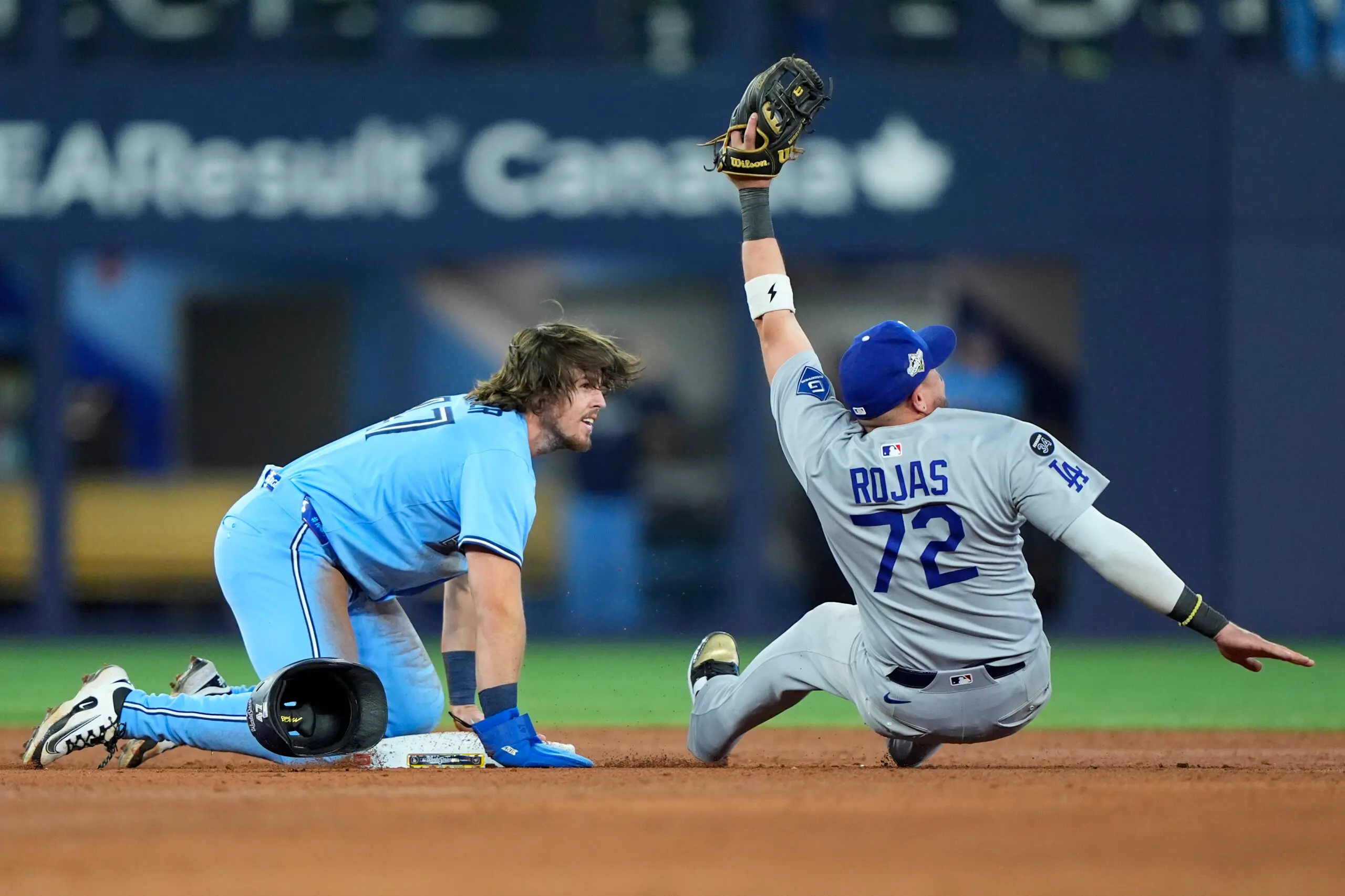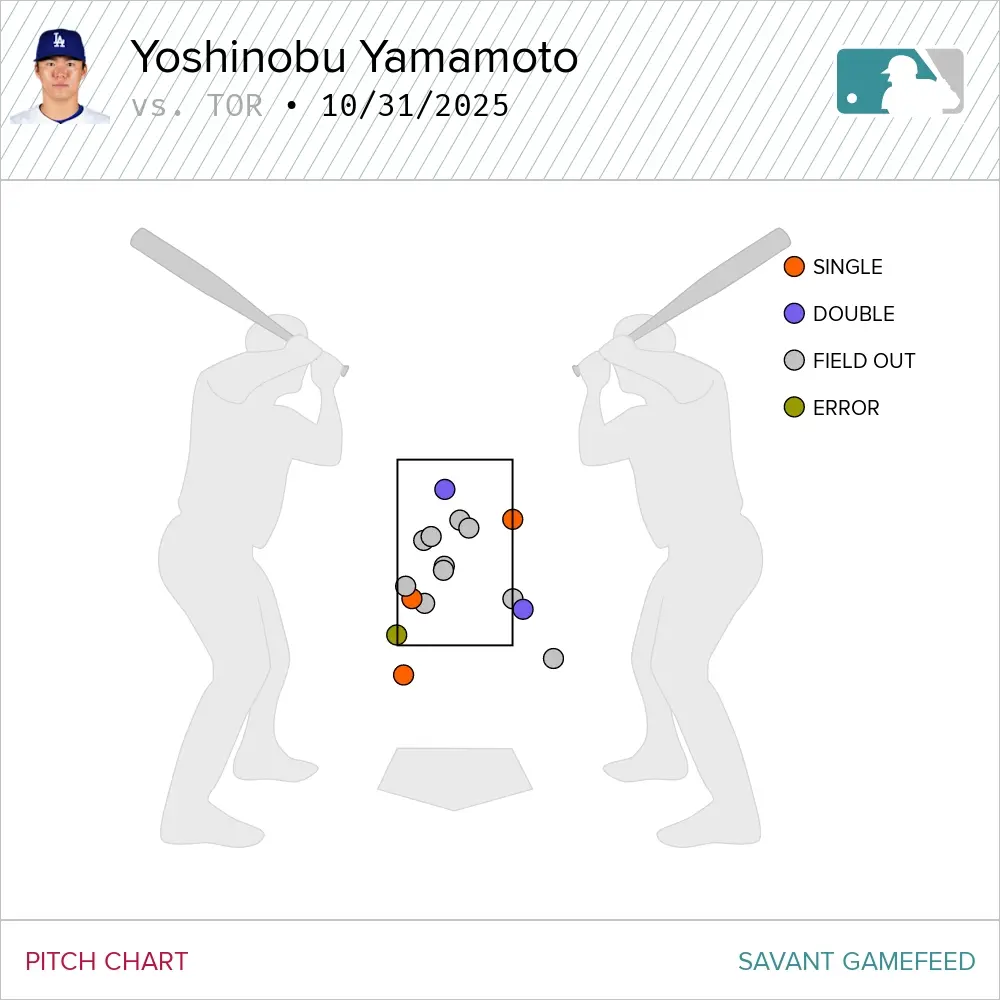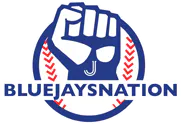Missed run-scoring opportunities cost Blue Jays in potential World Series-clinching Game 6

Photo credit: John E. Sokolowski-Imagn Images
By Thomas Hall
Nov 1, 2025, 07:00 EDTUpdated: Nov 1, 2025, 10:59 EDT
The baseball gods wanted this season to last one more day.
After taking two out of three in Los Angeles, the Blue Jays returned home to Toronto with a chance to knock out the reigning champion Dodgers in Game 6 on Friday, leading this year’s World Series 3-2. One more win would’ve allowed them to crack open the champagne bottles in celebration of their first title in over three decades.
But instead, after failing to scratch across more than a single run in a 3-1 defeat, it’ll all come down to another winner-take-all Game 7 — the third in franchise history and second in as many rounds.
“It’s Game 7 of the World Series at your home stadium,” said manager John Schneider, who, even after failing to close out a World Series-clinching game, opted to focus on the positive ahead of Saturday’s season-defining Game 7. “I mean, what the hell else do you want?”
The Blue Jays will receive another opportunity to prevent the Dodgers from becoming baseball’s first repeat champions since the New York Yankees (1998-2000). That’s all you can ask for at this point. However, this team was one big hit away — a few different times, at that — from ensuring a Game 7 wouldn’t be needed.
Toronto’s offence had its chances against Yoshinobu Yamamoto, who departed after just six innings this time, snapping a streak of consecutive complete games. But they couldn’t cash in, even against the few mistakes that Los Angeles’ ace made. He missed over the heart of the plate multiple times, but only Addison Barger’s third-inning double resulted in a hit.

Source: Baseball Savant
That same group of pitches also translated into a pair of rally-killing, inning-ending double-plays — one from Vladimir Guerrero Jr. in the first inning, and Daulton Varsho with the other in the fourth.
Still, having Yamamoto exit on 96 pitches after the sixth was a huge victory for the Blue Jays. Or, at least, it should’ve been. The focal point of this entire series has been doing damage against a struggling Dodgers bullpen. So, naturally, Schneider believed his team was going to benefit from that momentum shift.
And they nearly did, several different times.
Toronto’s lineup put a runner in scoring position in each of the final four innings of this contest, but couldn’t take advantage — not even once. The top of the order put pressure on Roki Sasaki in the eighth, with George Springer and Guerrero both reaching safely with just one out. But again, Los Angeles’ staff extinguished the fire, retiring Bo Bichette and Varsho to end the inning.
Jump to the ninth, and the Blue Jays found themselves in another advantageous position. After a splitter from Sasaki hit Alejandro Kirk — who should be fine after undergoing precautionary X-rays, per Schneider — Barger crushed a 105.5-m.p.h. line drive that wound up getting lodged at the bottom of the padded wall in right-centre.
It’s a play that isn’t unfamiliar in baseball. However, it was likely a first at Rogers Centre, at least that anyone can remember. After replay review, the play was treated like a usual ground-rule double, placing Barger at second base and Myles Straw, entering as a pinch-runner for Kirk, at third as Andrés Giménez stepped to the plate.
But Giménez ended up facing Tyler Glasnow — previously lined up to either start or serve as a bulk reliever for the Dodgers in Game 7 — after he replaced Sasaki. Three pitches later, more chaos erupted on the field, with Barger getting doubled off at second on a “bad read,” providing a sour ending to Game 6.
After having multiple opportunities to mount one of their prototypical comebacks, the Blue Jays ultimately finished a measly 1-for-9 with runners in scoring position, stranding eight total base runners — including two in the ninth.
But they’re already turning the page from this disappointing outcome. It’ll be easier said than done, especially following an ending as dramatic as that. Nevertheless, it’s how this organization has operated all year. So, why change anything now?
“We’ve got voices in the clubhouse and people in the coaching staff that will keep it normal tomorrow,” Schneider said of his club’s preparation for Game 7. “It’s going to be fun. It’s going to be three or four or five hours of mayhem and great baseball.”
Mayhem it’ll likely be, indeed. That’s how most winner-take-all Game 7s play out. And with a championship title on the line, Saturday’s should present a long night of edge-of-your-seat entertainment.
There is no tomorrow for the Blue Jays or Dodgers, with everything coming down to the final day of the season. Win or lose, it’s been a once-in-a-lifetime season for Toronto. If the latter unfolds, though, viewing this run as anything other than a huge missed opportunity will be virtually impossible, given how close they were to flipping the script in Game 6.
Breaking News
- How will Blue Jays utilize Louis Varland following historic post-season
- Revisiting notable Blue Jays trades from 2020 to 2022
- Blue Jays Nation’s Top 25 Canadian Baseball Prospects for 2026: #4 Tyler Bremner
- Blue Jays, Anthony Santander didn’t discover labrum tear until this winter
- Blue Jays: Looking at a potential platoon strategy for the lineup in 2026
